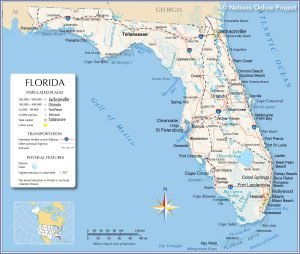“The Right to Knowledge of All Government Activities”

If you’ve followed the Edward Snowden thing, you probably wouldn’t be too surprised to hear that the government can spy on you using your own cell phone and laptop. It’s one of those times when those nutcases who see government conspiracies everywhere suddenly don’t sound so crazy. It does make you wonder what else the government is doing without telling you. Section 5 of Article I of the U.S. Constitution does require that each house of Congress regularly publish a journal detailing its activities, as quoted here:
Each House shall keep a Journal of its Proceedings, and from time to time publish the same, excepting such Parts as may in their Judgment require Secrecy; and the Yeas and Nays of the Members of either House on any question shall, at the Desire of one fifth of those Present, be entered on the Journal.
You might note the “in their Judgment require Secrecy” part. If you subscribe to satellite TV, you may have noticed that the Senate and House of Representatives each have their own TV channels (C-SPAN) and it’s interesting to watch if you want to see how they operate or just get some laughs out of the latest filibuster. There have been incidents in which one of our representatives in Congress called for a closed session, blacking out their respective channels, and got accused of pulling a stunt. And of course you wonder what went on during that closed session. It’s very possible that they talked trash about one particular part of the United States or passed a bill expanding the powers of the CIA while enjoying the fact that they weren’t being monitored.
It does happen. Sometimes I think they count on the fact that not many people pay attention to what they actually do when they’re at Capitol Hill, and they complicate matters by making their bills excessively long. Remember how huge the Affordable Care Act was? The condensed version is nearly 1000 pages long. Did they really need 1000 pages to basically require Americans to buy health insurance the same way most states require that vehicle owners buy insurance for their vehicles and require insurance companies to cover them? If you just look at the table of contents on the actual bill, you’ll notice that it was quite a complicated document that covers such line items as “Protection for recipients of home and community-based services against spousal impoverishment” and “Increasing the Supply of the Health Care Workforce.” For all its complexity (and it’s obvious that they wanted to make sure they covered all their bases), it’s probably never going to be perfect. And it’s likely that nobody is going to want to curl up in their easy chair and read such a long, dry document during those miserable rainy evenings. You could slip a lot of line items into a bill that nobody’s ever going to read. Kinda makes you wonder why the U.S. Supreme Court struck down line item vetoes, doesn’t it?
But I’m not here to bash the Affordable Care Act. It’s shaking up the industry, especially health insurance, and getting rid of the excuse, “We’ve always done it this way,” is not necessarily going to be a bad thing once things settle down. Bills get passed that nobody really knows about and Edward Snowden really just proved two things. First, the government can hack your laptop and install malware as easily as that shady fellow who wants to steal your bank information and they are equally unlikely to just come out and tell you that they’re doing it if they use the excuse that it’s for “national security.” You can forget about warrants when there are courts that exist only for the sake of granting law enforcement agencies the right to make searches that would otherwise be illegal. Second, large corporations are very unlikely to stand up to the government when their records get subpoenaed and especially when they can get some kind of payoff for forking over your supposedly “private” records to the government. And then they try to do damage control and cry to the public about how the government bullied them into doing it when they get caught. The government complains that Snowden actually helped America’s enemies because now they have to develop whole new tactics to stop terrorist attacks, but you really don’t need to collect entire terabytes’ worth of phone records when it would make more sense to use some restraint, forget about just collecting everything, and tell Sprint, “Hey, this guy’s a known jihadist who has a cell phone contract with you, we want to know who he’s been talking to.” I’m sure that would save all the expense of having to buy the hardware to store all that data while reassuring people that the Constitution still exists when word of what’s going on finally gets out. And now everybody’s mad at the U.S. government for not telling them that they can be spied on at any time. That would make for a decent case for transparency in government operations. If you explain in advance why you think you have to install malware on laptops, you’ll still have to make a very good case for what you’re doing and consistently stick to established law when it comes to actually implementing your plan because you can be sure that people still won’t like it, but at least we can have that debate without trying to turn a fellow who really didn’t do a lot except let us know what was happening into a scapegoat. Watch the lawsuits for essentially making unwarranted searches come out of the woodwork, folks.
As with “The right to all scientific knowledge,” most people won’t even care and some people will probably just take their laptop to their local computer nerd to get the malware taken off when it starts to affect the machine’s performance. And there are people who would probably try to entertain the creeps listening to their cell phone conversations by talking dirty to their girlfriend. (Yeah. If they’re going to do it, you might as well give them an earful, right?) Knowledge of all government activities simply means that people who actually care can hold the appropriate government officials responsible when they cross the line. The government is afraid of that, so they often rely on both the complacency of the majority and their ability to classify anything they don’t want getting out so that nobody finds out about it. And then there’s a big blowup that usually involves strained relations with foreign nations and citizens calling for the heads of the responsible parties when we have leaks on the level of Edward Snowden’s revelations. It’s not likely that the CIA or the NSA will take the hint and clean up their act unless somebody is around to hold their feet to the fire. Maybe it shouldn’t have even been a surprise that they can listen in on people’s electronic communications. But they wouldn’t have been this embarrassed if their programs could have been more openly scrutinized and the people who went overboard held responsible. Knowledge of all government activities does not necessarily mean compromising national security when you occasionally have to send out Navy ships to catch some pirates and don’t want them finding out until after the fact. Then you can go to the newspapers and say, “We did this, this and this, and captured X number of suspected pirates.” Then the whole thing can be analyzed by the talking heads. That allows for more accountability in government and a better way to ensure that all of our other enumerated rights remain secure.
What Kind Of Harm Does It Do, Anyway?










